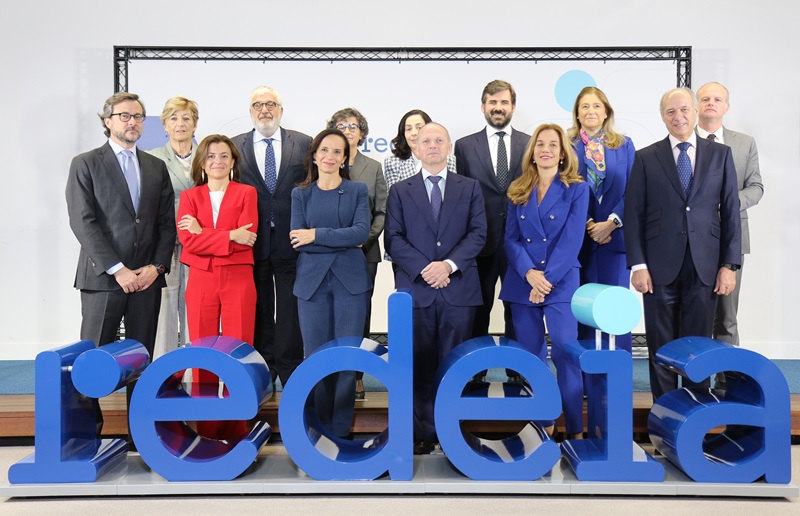We are a global operator of essential infrastructure
- This group is made up of Redeia, Emprendedorex, EnerAgen, Next Educación, 30 Local Action Groups and a biosphere reserve, which will work to accelerate the fight against climate change and achieve the PNIEC's goals at a territorial level
- The group's first project is a set of guidelines to help rural areas draw up their own energy transition plans within the Participatory Local Development Strategies framework
Rural areas now have a new tool to accelerate sustainable development and the fight against climate change. It is the Grupo Motor for the Territorial Development of the Energy Transition, an initiative that joins efforts at a territorial level to achieve the goals set for 2030 by the Integrated Energy and Climate Plan (PNIEC) in terms of greenhouse gas reduction, integration of renewable energies and energy efficiency, among others.
Grupo Motor is made up of Redeia, Emprendedorex, EnerAgen (Association of Spanish Agencies for Energy Management), Next Educación, 30 Local Action Groups (see below) and Valle del Cabriel Biosphere Reserve, and is willing to incorporate other groups and agents committed to improving the rural environment.
“The involvement of the territory and its inhabitants is essential in order to address the energy transition. This requires governance involving public and private agents, governments, companies and the main institutions operating in the territories. This is the only way for us to have a real chance of achieving the PNIEC's goals", stated Antonio Calvo Roy, Redeia's Sustainability Manager, during the presentation, which was attended by leading agents committed to rural development, such as the journalist Manuel Campo Vidal.
“At Grupo Motor we highlight the value of the rural environment as a desirable space to live, develop and thrive, claiming its role as a key player in the future of the country and as a key source providing a more accessible and cheaper energy for households and businesses. And it all comes from a national territorial project where each region of Spain can design its own PNIEC aligned with the national PNIEC," stated Francisco Javier Vidal Perez, president of EnerAgen.
“Rural areas cover 80% of the national territory. In this scenario, Rural Development Groups are in a unique position to lead the ecological transition in the territories of our country, just as we were in terms of rural development with programs such as LEADER. We are now starting to draft our Participatory Local Development Strategies and energy transition can be introduced as a central theme", added Juan Carlos Casco, CEO of Emprendedorex.
These are the Rural Development Groups that have initially joined Grupo Motor: Adiman, Mancha Júcar-Centro, Tagus, Adismon, Adesval, Tierras Sorianas Del Cid, Aprodervi, Prodese, Adizancara, Sacam, Fedesiba, Arjabor, Hurdes, Gran Vega, Guadiato, Adecor, Nororma, La Serena, Zafra Río Bodión, Ader La Palma, Ribeira Sacra-Courel, Zona Media de Navarra, Teder, Adegua, Adad, Medio Guadalquivir, Valle del Guadalhorce, Fadeta and Aracove.
Guidelines: a roadmap for energy saving or self-consumption
During Grupo Motor's presentation, the first project carried out by the group managed by Emprendedorex was launched: the Guidelines for the Development of Energy Transition Plans in Spain. This document has been designed to help Local Action Groups to draft their Energy Transition Strategies within the framework of their Participatory Local Development Strategies, although it is also applicable for designing plans and strategies of other types of organizations, public administrations, municipalities and territories.
It thus constitutes a roadmap for the territories to define and implement their strategies to promote future energy saving projects, the fight against energy poverty, building refurbishment, collective self-consumption, local energy communities, or biofuel production, among many others.
To date, Grupo Motor is already working on supporting the creation of rural energy communities to fight against energy poverty and on the implementation of the Community Transformation Offices for the Promotion and Revitalisation of Energy Communities.












